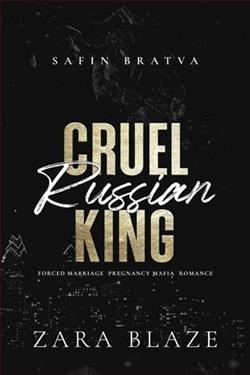Page 7 of Lord of Darkness (Maiden Lane 5)
She glanced down at the heavy pistols in her lap and then across the carriage to her dear friend and sister-in-law, Sarah St. John. “I’m sorry. That was …”
“An idiotic idea?” Sarah arched one light brown eyebrow. Her straight-as-a-pin hair varied from mouse-brown to the lightest shade of gold and was tucked back into a sedate and very orderly knot at the back of her head.
In contrast, Megs’s own dark, curly hair had mostly escaped from its pins hours ago and was now waving about her face like a tentacled sea monster.
Megs frowned. “Well, I don’t know if idiotic is quite—”
“Addled?” Sarah supplied crisply. “Boneheaded? Daft? Foolish? Ill-advised?”
“While all of those adjectives are in part appropriate,” Megs interjected primly before Sarah could continue her list—her friend’s vocabulary was quite extensive—“I think ill-advised might be the most applicable. I am so sorry for putting your life in danger.”
“And yours.”
Megs blinked. “What?”
Sarah leaned a little forward so that her face came into the carriage lantern’s light. Sarah usually had the sweet countenance of a gently reared maiden lady—which at five and twenty she was—belied only by a certain mocking humor lurking at the back of her soft brown eyes, but right now she might’ve been an Amazon warrior.
“Your life, Megs,” Sarah replied. “You risked not only my life and the lives of the servants, but your life as well. What could possibly be important enough to venture into St. Giles at this time of night?”
Megs looked away from her dearest friend. Sarah had come to live with her at the St. John estate in Cheshire nearly a year after Megs’s marriage to Godric, so Sarah didn’t know the real reason for their hasty nuptials.
Megs shook her head, gazing out the carriage window. “I’m sorry. I just wanted to see …”
When she didn’t finish the sentence, Sarah moved restlessly. “See what?”
Where Roger was murdered. Even the thought sent a shard of dull pain through her heart. She’d directed Tom the coachman to drive into St. Giles, hoping to find some lingering trace of Roger. There hadn’t been, of course. He’d been long dead. Long lost to her. But she’d had a second reason to look around St. Giles: to learn more about Roger’s murderer, the Ghost of St. Giles. And in that, at least, she’d succeeded. The Ghost had appeared. She hadn’t been adequately prepared tonight, but next time she would be.
Next time she wouldn’t let him get away.
Next time she’d blast a bullet through the Ghost of St. Giles’s black heart.
“Megs?” Her friend’s gentle murmur interrupted her bloody thoughts.
Megs shook her head and smiled brightly—perhaps too brightly—at her dear friend. “Never mind.”
“What—”
“Goodness, are we here already?” Megs’s change of subject was not subtle, but the carriage was slowing as if they’d finally arrived at their destination.
She leaned forward, peering out the window. The street was dark.
Megs frowned. “Maybe not.”
Sarah crossed her arms. “What do you see?”
“We’re on a narrow, winding lane and there’s a tall, dark house up ahead. It looks very … um …”
“Ancient?”
Megs glanced at her companion. “Yes?”
Sarah nodded once. “That’s Saint House, then. It’s as old as dust, didn’t you know? Didn’t you see Saint House when you married my brother?”
“No.” Megs pretended to be engrossed in the dim view out the window. “The wedding breakfast was at my brother’s house and I left London a sennight after.” And in between she’d been bedridden at her mother’s house. Megs pushed the sad memory from her mind. “How old is Saint House?”
“Medieval and, as I remember, quite drafty in winter.”
“Oh.”















